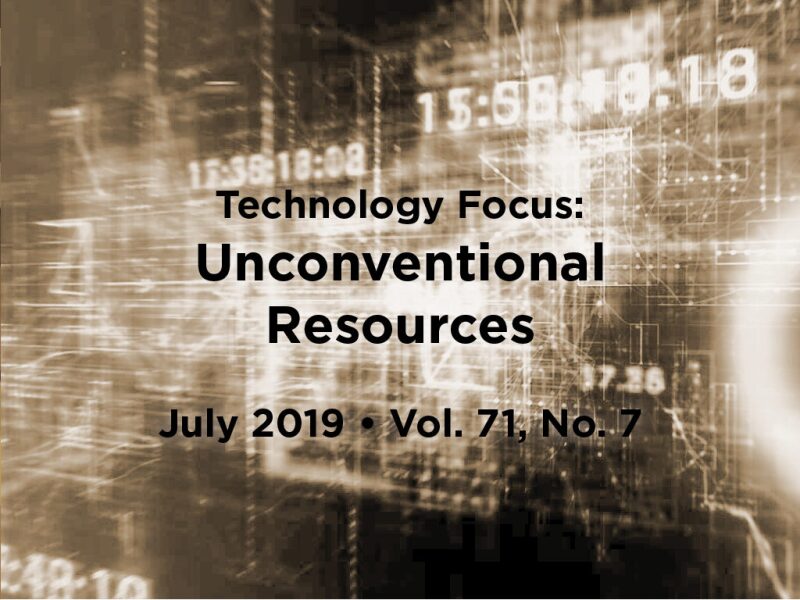The charge of a JPT Technology Focus reviewer is not only to select the best SPE papers encountered over the past year but also to identify potential ways in which these papers, and the technology contained therein, can assist the growth of industry professionals. While all of JPT’s feature topics are of great importance to the industry, the technical attention and economic importance attached to unconventional plays in recent years stresses a need for appropriately unconventional thinking. For this year’s feature, the selected papers provide innovative work flows that assist in determining productivity, reduce the effect of uncertainty conditions, and spark rejuvenation.
The first of these, paper SPE 190860, emphasizes the importance of an effective lateral-landing strategy in enhancing long-term reservoir productivity and provides a work flow that uses a suite of integrated data to achieve consistent results that can aid in field management and ultimate recovery estimates.
Paper SPE 191272 uses a case study from the Vaca Muerta Shale in Argentina to demonstrate the efficacy of a work flow that uses a simulation-based approach combined with high-speed computing to improve investor confidence. The authors stress in particular the need to characterize the correct variables and to establish the range of their uncertainty.
Finally, paper SPE 191457 introduces an integrated work flow that couples geomechanical effects and reservoir-simulation modeling in the effort to rejuvenate unconventional plays, stressing interpretation of the variables that can affect the development of the simulated reservoir volume.
These three innovative papers represent, as always, the skill and vision of industry professionals like yourself as we continue to learn from, and add to, the body of technical knowledge that SPE represents. I hope that you enjoy the papers.
This Month's Technical Papers
Study Uses Wellbore, Reservoir, Fracture Models To Determine Productivity
Work Flow Uses Vaca Muerta Data To Optimize Asset Evaluation
Integrated Approach Improves Modeling of Rejuvenation in Unconventional Plays
Recommended Additional Reading
SPE 191923 Alleviating the Solids Issue in Surat Basin in Coal-Seam-Gas Wells by Daniel Kalinin, Schlumberger, et al.
SPE 192010 Optimizing Horizontal Coal-Seam-Gas Wells by Combining Reservoir Simulation and Transient Well Modeling by Turaj Nuralishahi, APLNG, et al.
SPE 192694 First Global Successful Large-Diameter Pressurized Coring Application Using High-Performance Water-Based Mud: Kuwait Case History by Robin Stewart, Halliburton, et al.

| Simon Chipperfield, SPE, is chief production engineer at Santos. During the past 20 years, he has held positions in petroleum engineering (drilling, completions, and stimulation), production engineering, and reservoir engineering. Chipperfield previously worked for Shell International Exploration and Production. He was awarded the 2007 SPE Cedric K. Ferguson Medal. Chipperfield has held a number of leadership positions and has authored or coauthored more than 20 technical publications in the areas of hydraulic fracturing, reservoir engineering, completion technology, and sand control. He holds a petroleum engineering degree with honors from the University of New South Wales. Chipperfield serves on the JPT Editorial Committee, having served as the Hydraulic Fracturing feature editor from 2006 to 2011, and on the SPE International Awards Committee, and he has served as a reviewer for SPE Production & Operations. He can be reached at simon.chipperfield@santos.com. |


